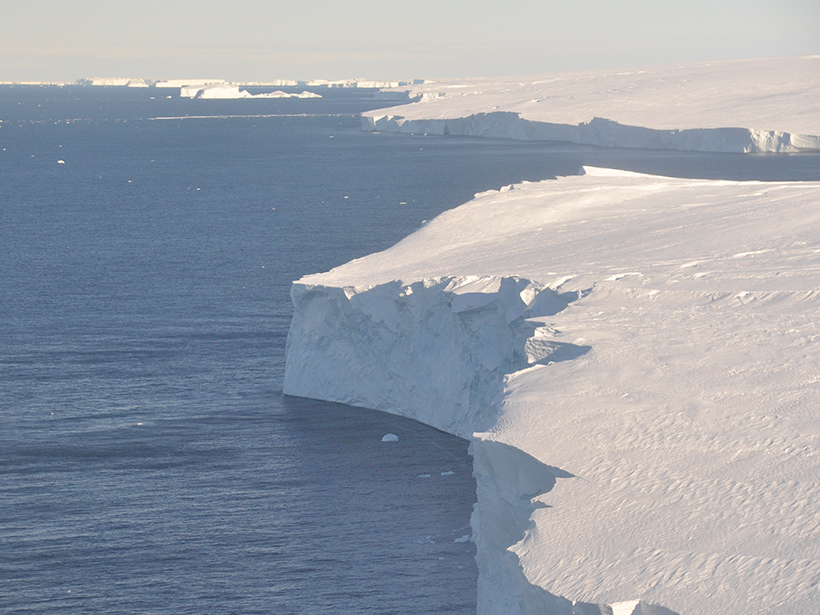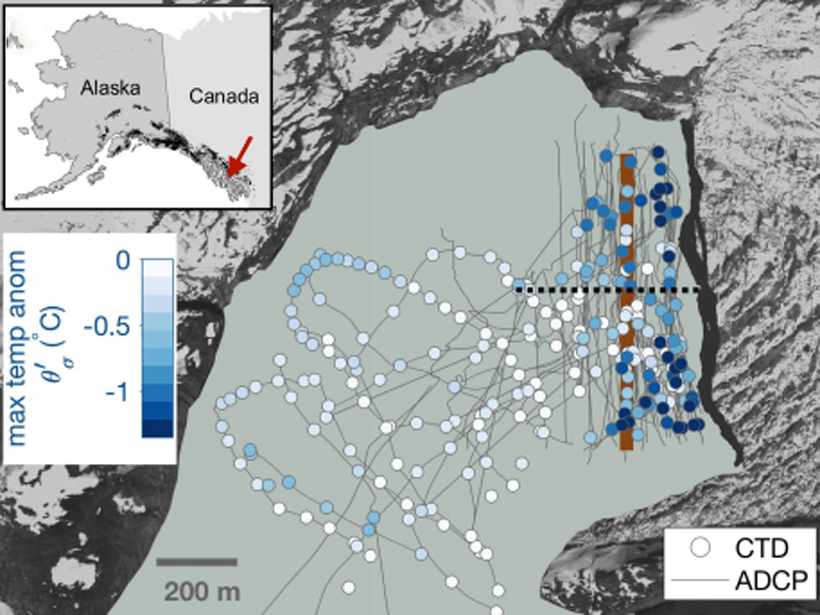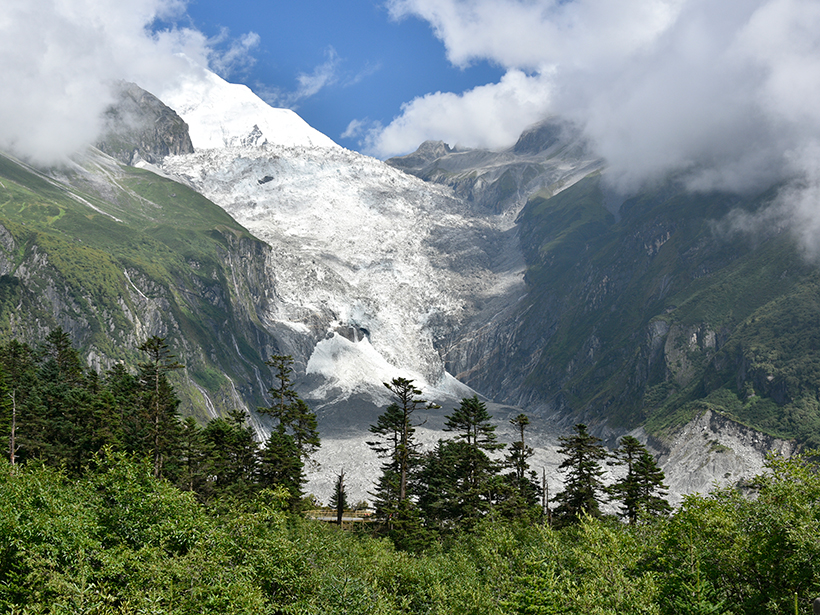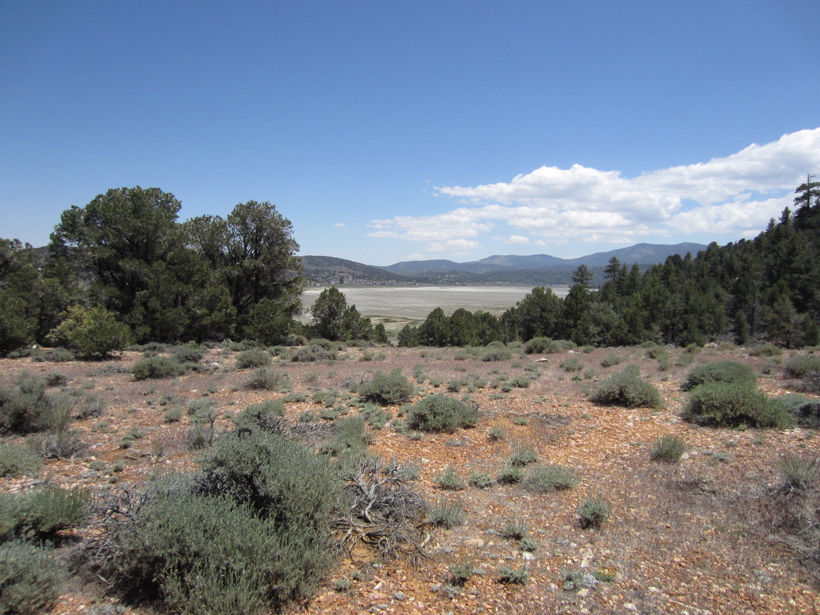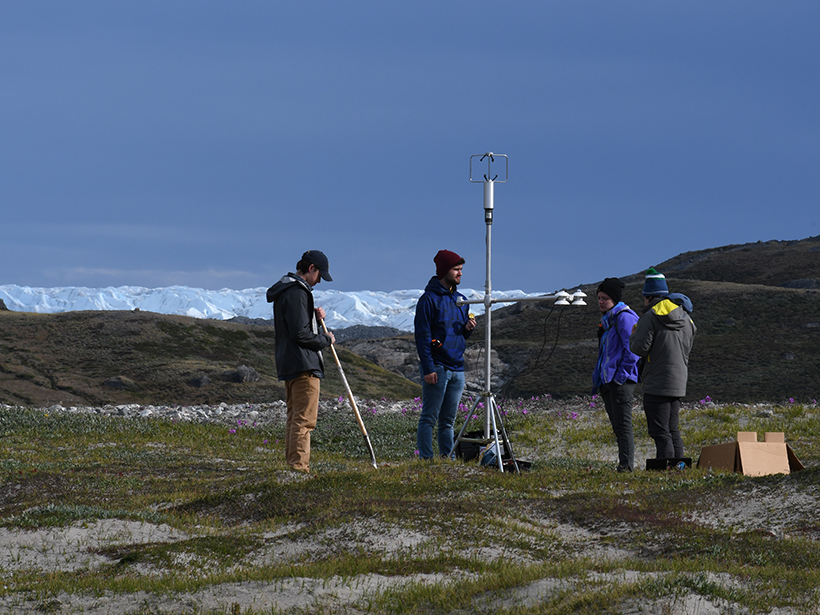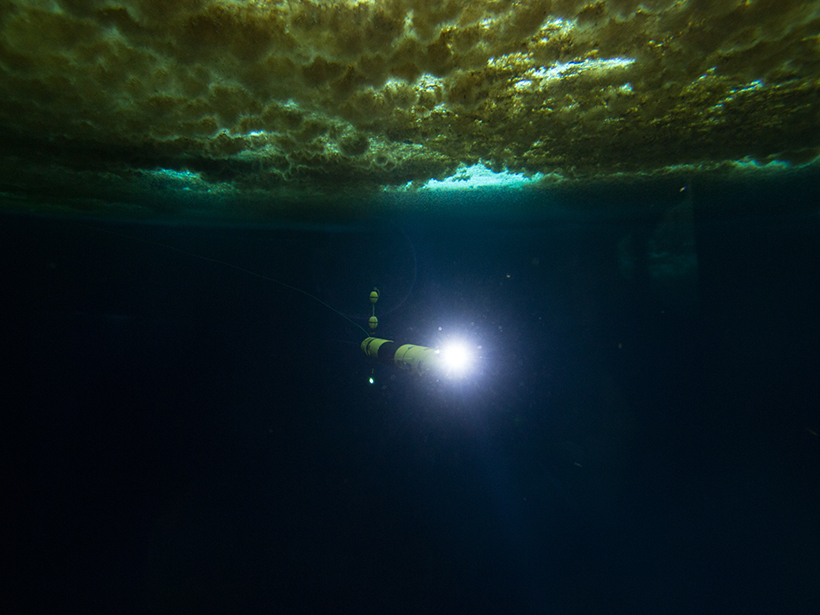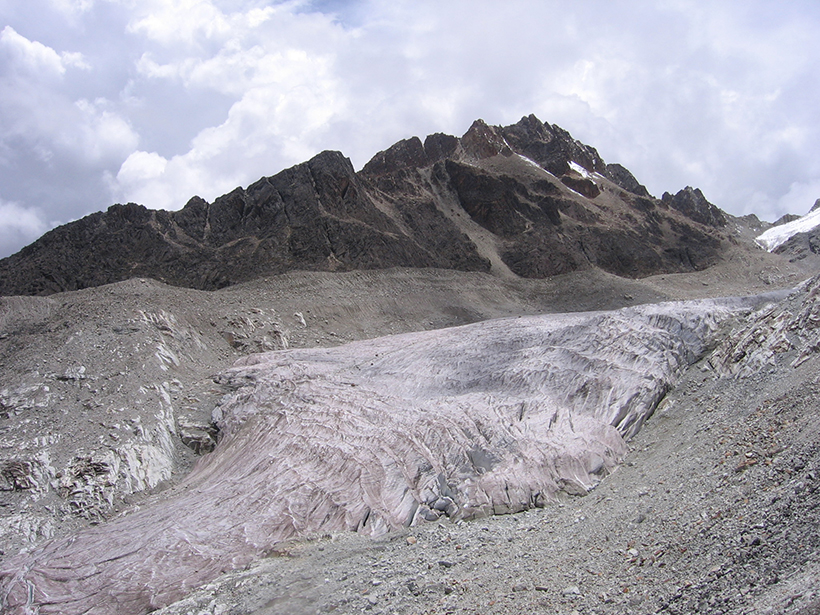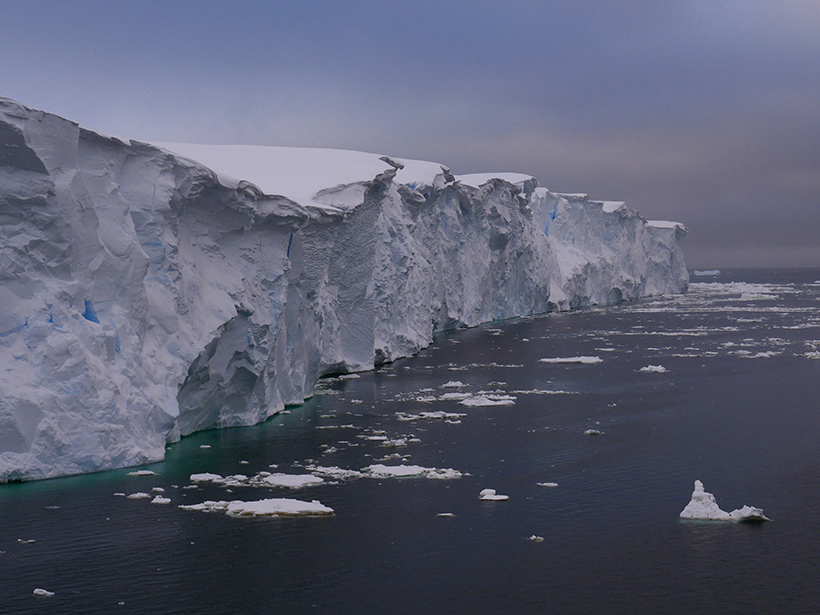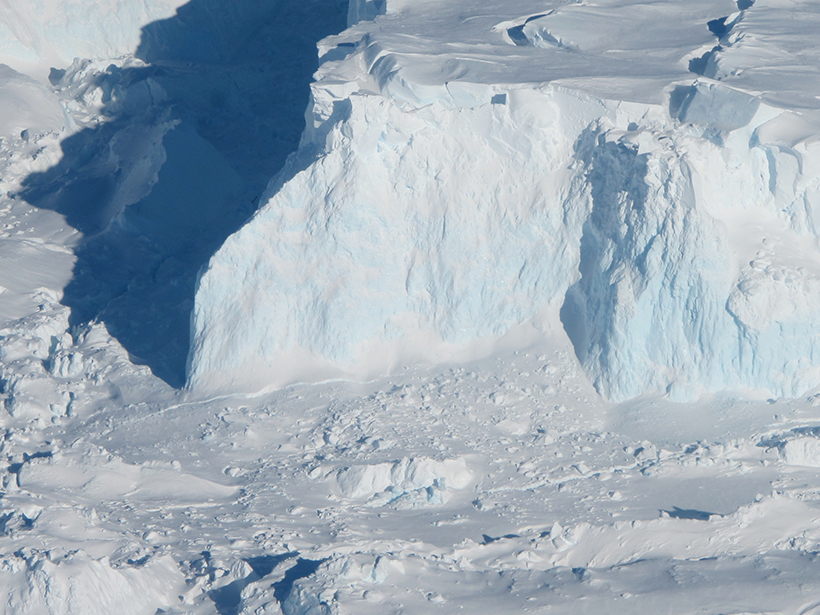These seismic events, triggered by icebergs capsizing and ramming into Thwaites, reveal that the glacier has lost some of its floating ice shelf.
glaciers & ice sheets
First Field Observations of Ocean Melting a Tidewater Glacier
Using autonomous kayaks, researchers carried out measurements of water properties near the terminus of LeConte Glacier and showed that ice/ocean interactions are more complex than thought.
The Give and Take of Mercury in Glacial Landscapes
As glacial ice melts, toxic mercury is released into the environment. But a new study shows vegetation may be an effective cleanup crew.
Southern California Climate Change over 100,000 Years
Researchers used a sediment core from a lake in California’s San Bernardino Mountains to track the effect of climate on vegetation, fire, and erosion between about 120,000 and 15,000 years ago.
Seeing the Greenland Ice Sheet Through Students’ Eyes
A team of students and faculty advisers revisited the site of pioneering geosciences expeditions from the 1920s, looking to introduce young researchers to polar science.
An Ice Sheet’s Footprint on Ancient Shorelines
Researchers combine observations of ancient shorelines and properties of Earth’s crust to infer the size of the Laurentide Ice Sheet during the last glacial cycle.
Diagnosing Thwaites
The water under a vulnerable Antarctic glacier is warming. Its catastrophic collapse could trigger a dramatic increase in global sea level.
Amazon Fires Contribute to Andean Glacier Melting
New research finds that black carbon emissions produced by fires in the Amazon cause glaciers in the Andes to absorb more sunlight and melt more.
Controlled Explosions Pave the Way for Thwaites Glacier Research
Scientists detonate explosives in West Texas to prepare for fieldwork in West Antarctica.
What Lies Beneath Is Important for Ice Sheets
New research reconstructing the topography of Antarctica shows that the continent has 25% less land above sea level than when ice first started to accumulate 34 million years ago.

